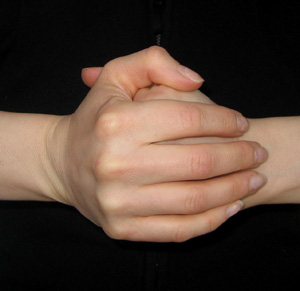
The Myth: Sugar makes kids hyperactive
Dr. Vreeman and Dr. Carroll, both pediatricians at the Riley Hospital for Children recently said: “in at least 12 double-blinded, randomized, controlled trials, scientists have examined how children react to diets containing different levels of sugar. None of these studies, not even studies looking specifically at children with attention deficit-hyperactivity disorder, could detect any differences in behavior between the children who had sugar and those who did not.” This includes artificial and natural sources of sugar. Interestingly, in the study, parents who were told their children had been given sugar when they hadn’t, noted that the child was more hyperactive. So it seems it is all in the parent’s mind.
9. Body Heat

The Myth: You lose most of your body heat through your head
A military study many years ago tested the loss of temperature in soldiers when exposed to very cold temperatures. They found rapid heat loss in the head – and so the idea that we lose heat through our heads was born. But what they didn’t tell you was that the soldiers were fully clothed except for their heads. This obviously skews the statistics considerably. The fact is, completely naked, you lose approximately 10% of your body heat through the head – the other 90% is lost via the other parts of your body.
8. Water Consumption

The Myth: You should drink at least eight glasses of water a day
The origins of this myth is most likely the fact that a 1945 government agency said that the human body needed around 8 glasses of fluid a day. This included the fluid from all of the foods we eat and drinks like tea and coffee. Somehow over time “fluid” turned to “water” and the modern water myth arose. This also lead to silly slogans like “if you are thirsty it is too late” – a concept that would seem to have been invented by water bottlers who have something to gain from excess water consumption in the population in general. So, in reality, if you are thirsty, drink some water. If you are not, don’t.
7. Gummed Up

The Myth: Chewing gum takes seven years to pass through your system
I am sure we have all been told at least once in our life by a concerned adult, not to swallow gum as it will take seven years to leave our bodies. This is right up there with the whole “fruit seed growing a tree in your stomach” silliness, but while most adults realize the tree story is a myth, they don’t realize that the gum one is too. It is true that gum is not digestible in the human body, but it simply passes whole through your system. It doesn’t stick to your insides, it just continues along with any food you have eaten and pops out the other end. This myth may have partly arisen from the fact that swallowing gum was once viewed as lower class and ignorant.
6. Arthritic Knuckles

The Myth: Cracking your knuckles will cause arthritis in later life
The cracking sound in the knuckles is caused by the bones moving apart and forming a gas bubble – the sound is the bubble bursting. It is quite common to hear someone warning a knuckle-cracker that they will get arthritis, but the worst that can happen to a compulsive-cracker is that their finger joints may weaken over time. Arthritis is caused by a variety of things (such as crystal formations in the case of gout) – but knuckle cracking isn’t one of them.
5. Baby teeth

The Myth: Teething causes a fever
Scientific studies have been done in the area of teething which show no correlation at all between fever and teething. If your baby is suffering from a new tooth and they also have a fever, it is advisable to check for other causes of the fever. The same is true of diarrhea which is also often blamed on teething in infants. It is always better to be safe than sorry when dealing with the health of children.
4. Cancer Treatment

The Myth: Cancer treatment is painful and pointless – furthermore, it is incurable
While this may have been almost true thirty years ago, medical advances have meant that modern cancer treatments are far more effective and cause less suffering for the patient. A few decades ago, 90% of children with leukemia died; today 80% survive. Many people think cancer is incurable as there isn’t a “one drug fixes all” cure, but there are many people who are completely cured of cancer. Various drugs exist to treat different types of cancer, and many of them are extremely effective and well worth trying if you do get the disease.
3. Back Pain

The Myth: Back pain should be treated with bed rest
The opposite is actually true in this case. Bed rest can prevent the lower back from fully recovering – or at the very least, delay the recovery significantly. Patients who continue to engage in ordinary activities recover faster and usually have fewer problems with recurring pain and other back troubles. Interestingly, many studies have shown that this is not just true of back problems, but also many other medical problems. Thirty-nine independent studies found bed rest to be more harmful than good in a broad range of illnesses.
2. Turkey Sleep

The Myth: Eating turkey makes you sleepy because it contains tryptophan
This is one of the most common myths on this list – and it pops up every year around Thanksgiving. But actually, chicken and ground beef contain almost identical quantities of tryptophan as turkey does. Other foods such as cheese and pork contain significantly more of the chemical than turkey. So why do people think turkey makes them sleepy? It is most likely due to turkey appearing at very large meals often eaten during the day rather than the evening. The heavy meal slows blood flow which can cause drowsiness, and the timing can have a huge psychological impact: in other words, you are imagining it.
1. Midnight Snacks

The Myth: Eating at night makes you fat
Secret snackers rejoice! This is a complete myth. It doesn’t matter what time of day you eat, as long as you eat only the total calories that you burn each day, you will not gain weight. If you eat fewer calories than you burn, you will lose weight, and if you eat more calories, you will gain. It is as simple as that. Having said that, the routine of three meals a day at the same time each day can have other benefits in life (routine is good and it helps humans work more effectively), but snacks at night are no worse than snacks in the morning or afternoon.
Bonus: Weight Gain

The Myth: It is harder to lose weight than to gain weight
Actually – once you get your head around a new eating pattern, math and science are working in your favor. It is mathematically easier to lose than to gain. For example, if you eat 3,500 calories more than you burn, you will gain 0.3 pounds (0.14 kg), but if you burn 3,500 calories more than you eat, you will lose 1 pound (0.45 kg). Also, if you want to lose weight, you can expose yourself to significant changes in temperature which speeds up your metabolism. Finally, the above information is based on a pure fat diet – variations to the math occur when you introduce other types of food.
 Вход
Вход Зарегистрироваться
Зарегистрироваться




 Наверх
Наверх











